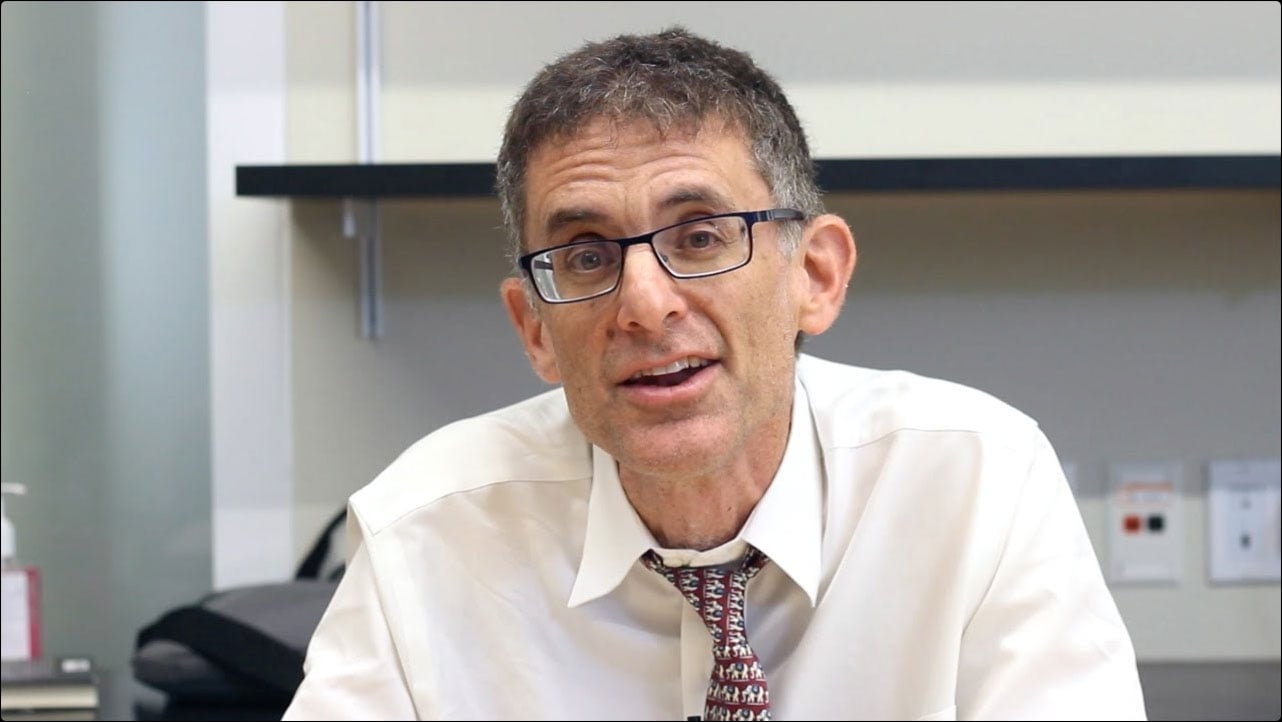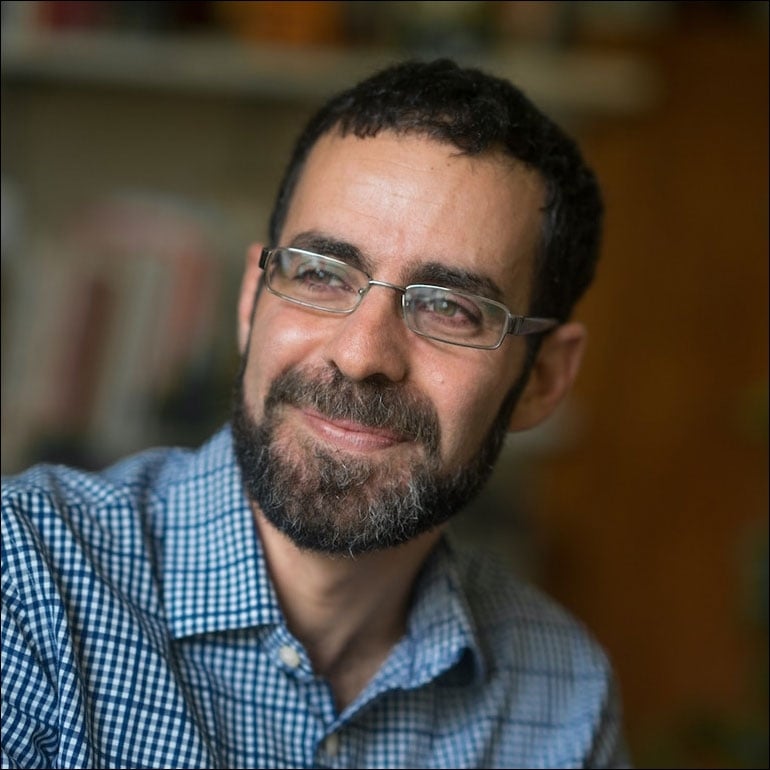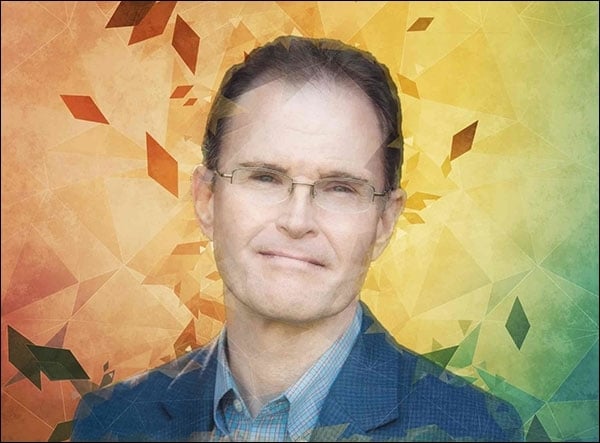How to Overcome Obstacles in Search of the Truth?
I have recently had the pleasure of speaking with some eminent historians and philosophers.
Note: This article is from blogger Jake Newfield, who shares his discussions with a group of great historians and philosophers, to understand their opinions and advice.
Their insights into ethics, truth, and emotional cognitive processes have opened my eyes, as they gave me a thorough explanation of the societal and epistemological obstacles that stand in the way of interpreting the truth, and what we can do to reach a common understanding. Here's what they told me:
Jonathan Zimmerman

“The real threat to freedom of expression in universities is self-censorship,” said Jonathan Zimmerman, professor of education history at the University of Pennsylvania, highlighting the fact that many individuals are uncomfortable with expressing their opinions openly, for fear of repercussions.
“The Foundation for Individual Rights on Education conducted a detailed study of 50 universities over the past years, and respondents from most universities said they did not speak out for fear of consequences, such as social rejection and stigmatization,” Zimmerman said. Therefore, it may become difficult to express new ideas or challenge accepted beliefs and norms.
In addition, many learning opportunities stem from hearing opinions that differ from yours. "We don't learn from people we agree with," Zimmerman continues, "we learn when we encounter challenges, sometimes through being offended, and sometimes by learning about new ideas."
Our ability to learn and develop is hampered by our inability to accept and comprehend new information and perspectives, which is necessary to broaden our understanding of the world. To illustrate the consequences of this idea, Zimmerman said: “When we change our words, we prevent ourselves from learning.” Zimmerman was an advocate of social justice who believed in the importance of freedom of expression, and he passionately defended it because, without it, oppression cannot be challenged.
When I asked him for examples, Zimmerman mentioned American abolitionist Frederick Douglass, and said of him, “Frederick Douglass called freedom of expression ‘the greatest moral reformer of society.’ If Douglass could not speak, he wouldn't have been able to fight slavery. That's why so many people tried to silence the abolitionists, who needed freedom of expression in their struggle against slavery."
When I asked Zimmerman how we should deal with controversial ideas, he noted that “ controversial opinions will offend some people." However, Zimmerman believes that ensuring justice for all is essential, as no one will take any action to meet minorities' needs and wants if they are unable to voice their opinions. Regarding information censorship, Zimmerman explained, "The terrible thing about censorship is that we never believe we are the censors."
Alan Levinovitz

Alan Levinovitz, author of The Gluten Lie and Natural, is an assistant professor in the Department of Philosophy at James Madison University. Levinovitz shared with me his thoughts on the connection between religious thinking and food philosophy, as well as the significance and benefits of uncertainty as a personality trait that guides individual behavior. Levinovitz discussed three points:
The Connection Between Religious and Food Thinking
“Food taboos in modern life are similar to religious taboos,” Levinovitz told me. It surprised me to hear this, as it never occurred to me that there might be similarities between religious thinking and some people's beliefs about their diet.
It might seem a little strange for Alan Levinovitz, a professor of religion, to have written books on nutrition and naturalism in philosophy. In fact, Levinovitz was able to identify subtle and complex patterns in attitudes toward nutrition because of his knowledge of the cognitive drivers and biases that underlie religious beliefs. Alan claims that we have been duped into accepting several diet-related myths that are only partially true in his book, The Gluten Lie. His contention that food beliefs can be similar to religious beliefs is supported by the fact that these ideas have spread over time in society.
Importance and Advantages of Uncertainty
“Nobody values enough the importance of being able to simply say, ‘I don’t know.’ I admire people who can admit they are wrong,” says Levinovitz. Also, he points out that humility is the basis of this trait, so if we do not admit our mistakes and look for the right answers, we will miss our opportunity to learn and may harm ourselves.
Levinovitz also explains that humility and acceptance of uncertainty are difficult, especially for individuals who are in physical pain or going through an existential crisis. According to him, “It is crucial for people to know when they are experiencing physical pain or existential suffering because it is difficult to admit ignorance. For example, saying 'I don't know' in response to the notion that the pandemic will last for a long time would be terrifying for someone who is infected with the virus.” It's true because when we're in pain or there's a chance we might be hurting, we want to believe that everything will turn out okay.
When discussing how people think and make decisions, Levinovitz stated, "People don't always buy into logical justifications, and sometimes emotional ones are required." He pointed out that, even when we believe we are acting rationally, most human discussions are driven by unconscious emotions. According to Levinovitz, we should embrace diversity because it helps us find the truth.
Public Debate Changes
There is a strong polarization in our society, particularly in the political sphere, and one of the interesting aspects of this phenomenon is that philosophical and political debate frequently takes place in front of an audience, whereas historically it used to take place behind doors. However, now that social media is so widely used, it is easier than ever to hear different opinions, which is why it is becoming more and more popular.
“Changes are happening, because normally the public wouldn't see the behind-the-scenes discussions between the experts. However, now we're seeing those debates broadcast live, and this move of the debates from behind the scenes to public view - ones that are concerned with truth - is interesting,” said Levinovitz.
Andy Norman

Andy Norman is the award-winning author of Mental Immunity: Infectious Ideas, Mind Parasites, and the Search for a Better Way to Think. He is famous for arguing that conspiracy theories can be viewed as "mental parasites."
Norman told me, “I discovered that the mind has an immunity that protects us from infectious thoughts, just as the body protects us from external pathogens.” Norman states, “This is not just an analogy,” because the idea of mental "parasites" closely resembles the general idea of germs and viruses.
As Norman explains, " The body's immune system is a complex set of processes that protect us from dangerous substances. Similarly, the mind’s immune system protects us from harmful thoughts. History teaches us that wrong thoughts can be deadly, and that's why people evolved the ability to recognize and eliminate dangerous thoughts. However, these systems are not flawless and occasionally prevent us from accepting good thoughts with bad ones.”
When I asked him how we can categorize or define thoughts that are "bad," Norman replied: " Lies are an example of a bad thought, in addition to ones that can cause harm to the believer or lead to negative actions toward other people. For example, if I believe that I am better than others, then my arrogance will negatively affect them, so this belief is harmful because it leads to harmful behaviors.”
When I asked Norman to explain the relationship between bad thoughts and the mind’s parasites, he replied, "Bad thoughts are the mind’s parasites. Parasites can take over, exploit, and spread within the host's body. It turns out that certain types of bad thoughts have exactly the same characteristics as parasites, so that's not just an analogy."
Mind parasites form "antibodies" that entrench a bad thought into the thinker's mind. “We envision our minds as thought containers, with the ability for the mind to decide whether or not to act on those thoughts,” Norman says. “However, if you pay close attention to the phenomenon of popular thoughts, you will realize that thoughts are not Inactive elements; rather, they are active and can take over the host's mind, disrupt their thinking, and cause them confusion, just like a virus does in the body.
Biological viruses are unable to reason but can still manipulate their hosts. For example, when a carrier sneezes, they pass copies of the virus to other individuals, similar to the way a malicious rumor is transmitted from one person to another. When you study the methods of spreading thoughts, you will realize that they are not confined to the realm of our minds. After a while, we will be able to control our actions so that they threaten our interests. The repercussions of this for previous civilizations have been catastrophic. You can see how civilizations rise and fall when you look through the lens of cognitive immunity.” Then, I asked Norman some questions, and his answers were as follows:
What Should We Avoid?
Norman replied: "It's best to avoid forming your personality based on your beliefs because once we know and understand a thought, we start to treat it like it's a part of who we are. Even though we all need to rely on some thoughts, the correct behavior is to rely on the proper thoughts from an objective standpoint, which promotes human flourishing and growth.”
What Should We Do?
In Norman's opinion, "Meditation enables you to think independently because it allows you to get away from your thoughts."
How Does the Mind Usually Deal with Mental Parasites?
According to Norman: “Doubts are the antibodies to the mind, which means that reservations, obsessions, and challenges are a form of defense that a healthy mind generates when faced with questionable information. A healthy mind is less likely to doubt a possibility when it is presented, which keeps the thought from taking over your mind. However, if the thought overcomes these mental defenses, your mental immune system will defend your beliefs, including that thought because it becomes part of your identity.”
Why Do People Believe Conspiracy Theories?
Norman replied, "We all crave a sense of belonging, and when a group unites and shares a set of beliefs, members may feel as though those beliefs are an integral part of their identity. When people lack these feelings, they are more likely to believe in group conspiracies that make them feel special."
How Do We Differentiate Between Truth and Lies?
Norman explains: “ Although the indications may not be reliable enough, we tend to view them as proof that something is true. For example, let's say that I feel better every time I drink a glass of water, leading me - based on this relationship between the data- to hypothesize that water contains an ingredient that boosts my health. However, this connection might simply be a coincidence; although there is "evidence" in this situation, it is not sufficiently reliable.”
How Do Scientists View Evidence?
Norman says, “Scientists are trained to think of real evidence as true, reliable indications of something, but the problem is that people don't know how to tell the difference between reliable and unreliable indicators. For example, when people who believe in a conspiracy theory look at "evidence" or data about that theory they think it is reliable proof.
Are There Beliefs That We Can Believe Without Evidence?
"Some beliefs have good reasons to believe in them without evidence, such as human rights. It is not important whether there is evidence that people have rights, because belief in human rights is of great benefit to society."
How Do We Know If an Idea Is Worth Believing In?
“ When you consider the arguments in favor of and against thought, you can determine whether it has a chance of succeeding. Looking at both sides makes it more difficult for you to draw quick conclusions, which increases your resistance to negative thoughts. On the other hand, confirmation bias is exacerbated by the belief that anything you can justify is logical.”
How Do You Identify the Right Thoughts?
“ A belief's justification depends on the arguments in favor of it, those against it, and how you respond to inquiries that challenge it.”